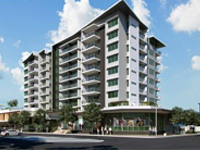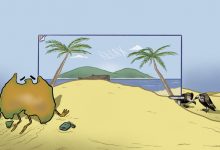Hubs and spokes a revolution for business travel?
A new player is set to revolutionise business travel with the opening of Australia’s first combined co-working and hotel brand this October.
Singapore-based Next Story Group is launching the country’s first Kafnu in Sydney – one of a series of similar ventures planned by the group throughout Asia and the Pacific.
Kafnu is described as a ‘real-life social network’, integrating ‘living, working, playing, learning, and recharging’.
The venue, a three-storey building on Bourke Road in Alexandria, includes 16 hotel rooms, co-working space, meeting rooms and member facilities.
The brand allows companies to reduce costs in high-rent markets by using Kafnu as satellite offices, with guests only paying for what they use. Its shared spaces are designed to foster collaboration while providing room for independent working.
While the Sydney model will offer hotel rooms rather than ‘pod’ accommodation, at Kafnu’s existing Asian properties, members needing to nap for a few hours after a late-night work session can book a sleep pod for just the time they need, rather than an entire overnight stay.
Other operators have set up co-work spaces in existing Australian hotels, but Kafnu will be the first to design and manage its own combined accommodation and co-working spaces.
Next Story’s chief development officer, Andreas Flaig said the group had looked at travel trends alongside work trends when conceptualising the brand, focusing particularly on millennials.
He told last week’s Australian Property Institute conference in Sydney the lines between business travel and leisure travel had blurred, creating the rise of “bleisure travel”.
“Are you working when you are in the office or are you not working when you are at home, how does that all work?” he said.
“Those lines are blurring and those are all part of the reason why we’re seeing the phenomenon of home-working existing and, quite frankly, exponentially growing.”
Mr Flaig said Kafnu varied from its competitors because it approached co-working from a hospitality rather than commercial office angle.
“They’re basically leasing space; they’re adding brand and services and then subleasing it at the end of the day.
“There’s nothing wrong with that at all, but that’s not our DNA, our DNA is hospitality so we’re looking at spaces in a different way.
“We have also focused our efforts a lot on travel and so our idea is to actually build a Kafnu portfolio around Asia Pacific.
“We are, in a way, a reinterpretation of what we once called a club – that is where we’re coming from.”
The company plans to create around 50-60 Kafnus across Asia Pacific, giving members “enough depth and opportunity as they travel” to use the shared facilities and tap into the local communities.
The brand is made up of two types of spaces: Kafnu Hub which ranges between 5000 and 10,000 square metres and Kafnu Spoke, occupying 2000 to 5000 square metres.
Spokes are generally the smaller outlets ideal to be incorporated into larger existing spaces such as hotels or malls. Hubs are freestanding larger entities that will have additional bespoke services on offer.
“The way we’re looking at it from a city-wide perspective is that we would deploy a hub-and-spoke strategy for any large capital Asian city and we would then replicate that throughout Asia Pacific,” Mr Flaig said.
Members would be able to access both Kafnu hubs and spokes in any city.

AccomNews is not affiliated with any government agency, body or political party. We are an independently owned, family-operated magazine.






